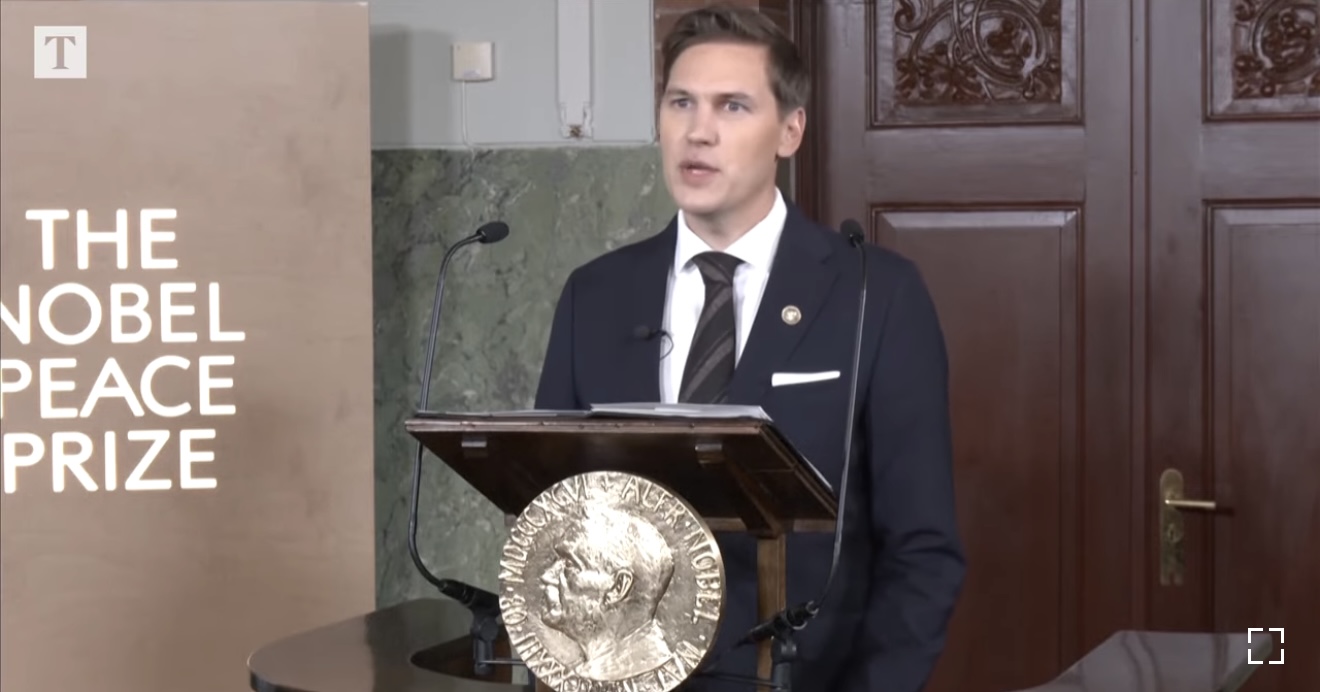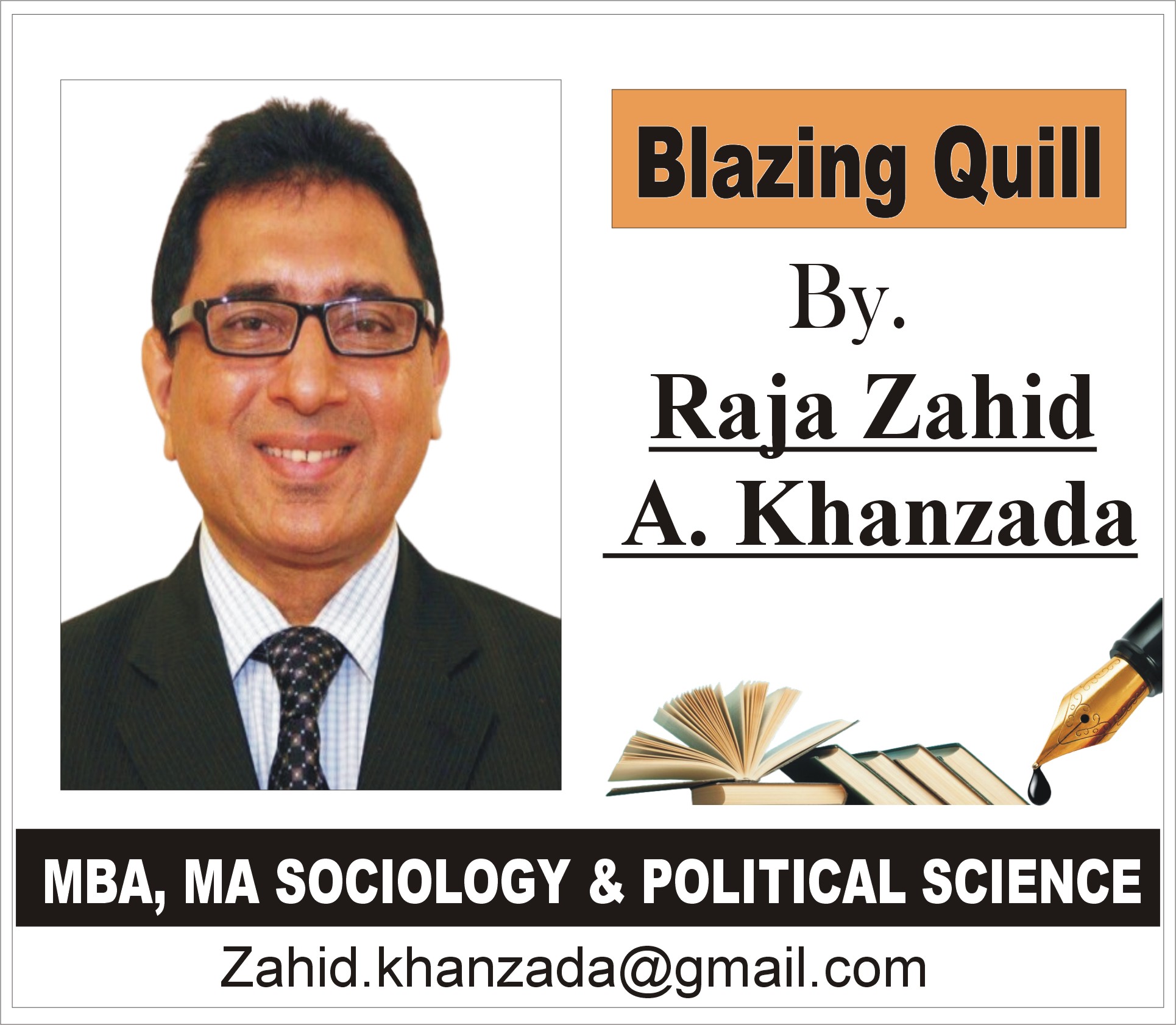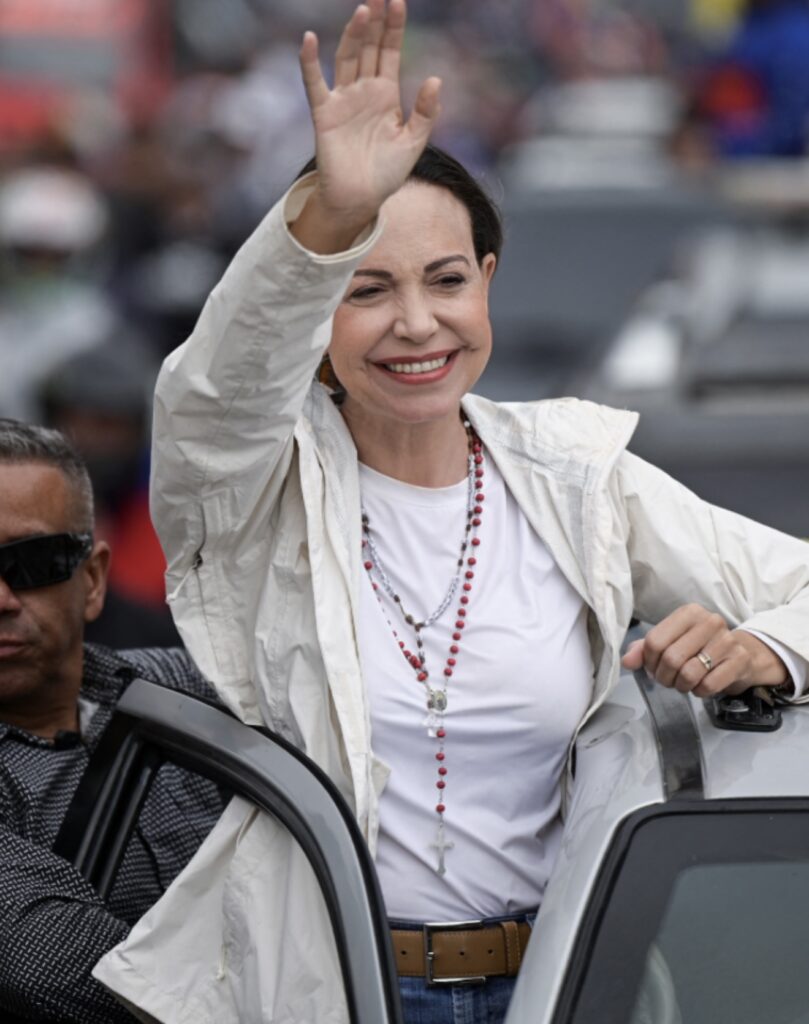Opinion | A Crown of Peace Amid the Shadows of Blood
Maria Corina Machado’s Nobel Victory and the Triumph of Conscience Over Power
By: Raja Zahid Akhtar Khanzada
In the cold Oslo air, a name echoed: Maria Corina Machado, the woman who lit the lamp of democracy amid darkness, whose hand did not tremble even in the shadow of fear, whose language never wavered, whose path never changed. On October 10, 2025, the Norwegian Nobel Committee placed the crown of peace upon her head. This decision felt like a statement: the prize belongs not to towers of power but to the light of conscience.
Yet from America’s corridors rose a sustained clamor: “I deserve it!” The same refrain, repeated for months and years, claiming the peace prize should belong to one person. Today, when the award was granted to someone else, headlines shifted: “Trump fails to win Nobel experts say he never had a chance.”
Peace is not secured by deals, photos, or tweets. To earn it, one must pay the moral cost and stand silently but firmly in the right direction even amid danger. That is precisely what Venezuela’s “Iron Lady” did.
Machado’s story is not a political saga but a moral parable. Despite arrests, bans, and pressure to leave the country, she stayed in her land, united a fragmented opposition, made ballots speak, and stamped truth over stories of tyranny. This decision is not just one person’s victory it is also a rebuke to an era in which democracy retreats and power claims it is itself the law. Major international institutions and influential newspapers all agreed: the Nobel Committee honored her for courage, resolve, and moral center.
Until yesterday, the “nomination market” was aflame. By Nobel rules, nominations remain secret for fifty years, but anyone can declare their candidacy and many did, loudly. Prominent leaders and nations touted the nominations; Israel’s prime minister championed Trump’s candidacy, and media lobbies for the “final hours” of the Nobel surged across headlines and television screens. Yet inside the committee’s room, something typical happened: doors were shut, silent argument carried the day, and the external roar did not enter.

Afterwards, when applause rings for peace, the echoes of distant cries are heard. In the past two years, UN and research institutions estimate that by early October 2025, Palestinian deaths in Gaza had reached nearly sixty-seven thousand. Despite discrepancies, those statistics point to one reality: war’s toll incinerates moral heat long before bodies turn cold. In such times, when propagandists of peace seek medals, history’s eyes become questioning.
This is the moment when humanity’s screams rattle conscience. Children, mothers, elders whose breaths now echo in silence to raise slogans of peace over their blood is to mock history’s face. When the same Israeli prime minister, responsible for mass killings, nominates an American president for peace, even history blushes. This contradiction is like a murderer preaching peace without ever cleansing his bloody hands.
On one side stands that woman from Venezuela, walking on earth while speaking to the heavens: peace demands not only nonviolence but the relentless practice of speaking truth against oppression. On the other side looms a tower of power, whose windows reflect their own image clearly but fail to see the smoke rising from burning homes afar. Whether or not the Nobel Committee used those exact words, their decision stamps this contradiction: peace demands the firmness of hands and the softness of heart, not branding.
In its official press release, the Nobel Committee stated that Machado was awarded for defending democratic rights and peaceful transfer of power in Venezuela. Leading global newspapers treated that point as central: “remain in hiding yet stay in the country; unite the opposition” those very standards paved her road to the prize.
Immediately after the announcement, analysts agreed: despite relentless claims and lobbying, the decision rested on Machado’s ethical and political struggle. Experts said Trump’s victory was never realistic. The politics of nomination complicated affairs: though Nobel rules hide nominations for fifty years, many powerful actors made open claims. Even the Israeli prime minister and other leaders publicly endorsed Trump none swayed the internal process. This decision, however, is a symbolic sentence to conscience in this century. The Nobel verdict whispers to history’s ear: peace is not a ruler’s ambition, not a state’s campaign, not a slogan it is the dust of a woman’s footsteps, lighting unseen paths with hope. If someone says “I deserve it,” the award answers: tell us, what price did you pay? Machado did. Thus her name is now inscribed on history’s forehead.
Major newspapers ,The Washington Post, ABC, Reuters have likewise called this decision a “victory of conscience,” noting that despite lobbying noise, the real decision was made by morality.
This prize is not only one woman’s triumph, but a mirror for all humanity. It demonstrates that peace is not an award or a medal it is sacrifice, truth, and the test of character. Whoever passes that test, history writes their name on its brow and today history has done so. Maria Corina Machado’s name now shines where conscience remains alive. She is a symbol for an age in which every powerful nation stands bearing peace flags in one hand and guns in the other. The Nobel Committee’s decision sends a silent message: the medal of peace belongs not to the powerful but to the truly human. That, perhaps, is the greatest lesson of this century.




